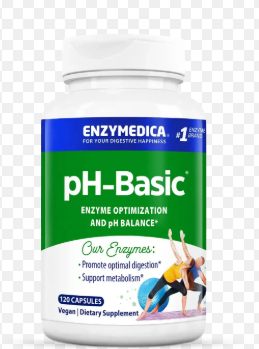Understanding the Daily Hydration-Headache Connection
Most people have experienced headaches at some point, and for many, the cause can be surprisingly simple: dehydration. While stress, poor sleep, and environmental factors are common triggers, the role of hydration in preventing headaches is often overlooked. Understanding how daily water intake affects our body and brain can be a key step in reducing the frequency and intensity of headaches.
Water is fundamental to almost every bodily function, and the brain is no exception. It is composed of roughly 75% water, which helps maintain its structure, deliver nutrients, and remove waste. When the body is dehydrated, the brain can temporarily shrink or contract, causing it to pull away from the skull. This process can trigger pain receptors and result in a headache. Even mild dehydration, which many people experience without realizing it, can be enough to spark these discomforts.
Daily water needs vary based on factors such as age, gender, climate, physical activity, and diet. A common recommendation is to drink around eight 8-ounce glasses of water a day, often referred to as the “8×8” rule. However, this is a general guideline rather than a strict rule. Some people may require more water, especially if they are physically active, spend time in hot environments, or consume dehydrating substances like caffeine and alcohol. Paying attention to your body’s signals, such as dry mouth, dark urine, fatigue, and dizziness, can help you gauge whether you need more fluids.
Hydration affects the brain in several ways that can influence headache development. Proper water intake ensures optimal blood flow, which supplies the brain with oxygen and nutrients. It also helps maintain a stable balance of electrolytes, which are essential for nerve function. Electrolytes such as sodium, potassium, and magnesium play a critical role in transmitting signals between neurons. When dehydration occurs, these processes can become less efficient, contributing to neurological stress and headache formation.
Interestingly, dehydration-related headaches often resemble migraines. They may present as throbbing pain, often on one side of the head, and may be accompanied by symptoms such as nausea, sensitivity to light, or fatigue. Recognizing the signs of dehydration can help differentiate it from other types of headaches and guide appropriate prevention strategies. In many cases, drinking water early can reduce the severity of a headache or prevent it altogether.
Hydration is not just about drinking plain water. The foods we consume also contribute to daily fluid intake. Fruits and vegetables with high water content, such as watermelon, cucumber, oranges, and strawberries, can help maintain hydration while providing essential vitamins and minerals. Soups, broths, and herbal teas are other excellent sources of fluids. Including these in your daily routine can support consistent hydration and reduce the likelihood of headaches triggered by fluid imbalance.
Another important aspect is the timing of water intake. Drinking consistently throughout the day, rather than consuming large amounts all at once, is more effective in maintaining steady hydration levels. Starting the day with a glass of water, sipping between meals, and drinking before, during, and after exercise are simple strategies that can make a noticeable difference. Establishing small, consistent habits like carrying a water bottle or setting reminders can ensure you remain hydrated even during busy schedules.
Caffeine and alcohol deserve special attention because they can increase fluid loss. While moderate caffeine intake is generally safe, excessive consumption may contribute to dehydration and exacerbate headaches. Alcohol acts as a diuretic, increasing urine output and the risk of fluid imbalance. Balancing these beverages with adequate water intake can help mitigate their dehydrating effects and support headache prevention.
Hydration also interacts with stress management and sleep quality, both of which influence headache frequency. Dehydration can worsen fatigue, irritability, and cognitive function, making it harder to cope with daily stressors. Adequate water intake supports overall energy levels and helps the body recover from physical and mental exertion. Combining proper hydration with relaxation techniques, regular physical activity, and good sleep hygiene can create a holistic approach to headache prevention.
Monitoring hydration can be straightforward with simple, practical methods. Paying attention to urine color is an effective indicator: pale yellow typically signals good hydration, while darker shades suggest the need for more fluids. Tracking daily water consumption through a journal or a smartphone app can help establish patterns and ensure you meet your individual needs. Being mindful of environmental factors, such as hot weather or high altitudes, can also guide adjustments to daily fluid intake.
In addition to prevention, hydration plays a role in managing headaches once they occur. For mild dehydration-induced headaches, drinking water slowly and resting in a cool, quiet environment can alleviate discomfort. Combining hydration with gentle stretches or relaxation exercises can further reduce tension and promote recovery. In more severe cases, persistent or unusual headaches should be evaluated by a healthcare professional to rule out other underlying causes.
Developing a daily hydration habit offers benefits beyond headache prevention. Proper fluid balance supports digestion, skin health, kidney function, and temperature regulation. It also promotes overall energy and mental clarity, making daily tasks more manageable and enjoyable. By viewing water as a foundational element of wellness, individuals can cultivate a lifestyle that naturally reduces headache triggers and enhances overall quality of life.
In conclusion, the connection between daily hydration and headaches is both significant and actionable. Even mild dehydration can provoke headache symptoms by affecting brain structure, nerve function, and blood flow. Consistently meeting daily water needs through drinking water, consuming hydrating foods, and managing lifestyle factors can prevent headaches and support general well-being. By paying attention to body signals, timing fluid intake effectively, and balancing hydrating and dehydrating substances, individuals can take control of their headache triggers. Understanding this connection empowers people to adopt practical habits that enhance comfort, energy, and daily functioning. Hydration is not just about quenching thirst; it is a powerful, everyday tool for reducing headache frequency and supporting a healthier, more balanced life.






